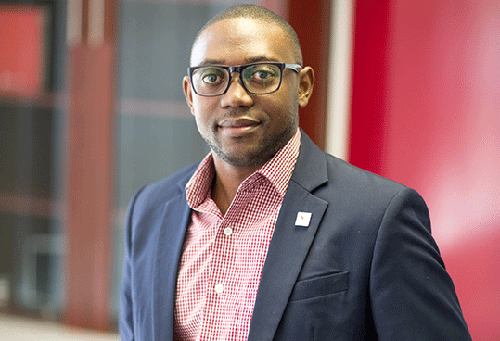The University of Namibia’s management says the envisaged camera installation on some of its campuses is meant to enhance security at the university and not to spy on staff or students.
This response follows concerns of infringement on academic freedom through surveillance in lecture halls and a lack of consultation by the university.
Lecturer Job Amupanda said the installation exercise was not explained to them, and that he deems it as an infringement on their academic freedom.
“We are concerned about the impact
and/or the implication of the above securitisation on the constitutionally guaranteed academic freedom – the freedom to teach, practise, research, inquire and communicate thoughts and outcomes unhindered and without interference,” he said in a letter t0 the institution’s academic affairs pro vice chancellor, Frednard Gideon.
Unam spokesperson Simon Namesho they have indeed embarked on a security enhancement project – and as of now, no CCTV cameras have been installed in lecture or examination halls.
“Our current focus has been on fortifying the perimeters and critical entry points of the main campus with high-tech security systems,” he said in response to detailed questions by this publication.
The ongoing security upgrades, he said, include CCTV cameras placed around the perimeter fence and entrances, as well as the introduction of advanced biometric and card systems, complemented by booms and electro-spike barriers.
“These measures have been strategically implemented to ensure robust security and safety for our university community,” Namesho clarified.
The tender advert for the supply of CCTV cameras to Unam opened to potential bidders on 20 October 2023 and will close on 27 November.
It reads: “Supply, installation, testing and commissioning of CCTV surveillance system and access control system at the University of Namibia, Windhoek main campus (phase 2) and Neudamm campus (phase 1)”.
Namesho further said the university has committed N$2 million for the first phase of the upgrades in question, following a public bidding process.
“This reflects our ongoing commitment to enhancing security in a phased and financially responsible manner. For now, we are particularly focused on the main campus due to its high traffic and on the Neudamm campus farm to address and mitigate stock theft. The overall project is earmarked to be rolled out to the rest of the Unam campuses in a phased manner,” he continued.
Another Unam lecturer holds the view that the university ought to be focusing on improving teaching and learning equipment.
“Isn’t it better to invest in the improvement and upgrading of the teaching equipment before installing the monitoring devices? I am sure the Unam we want wants to have its priorities in order,” another senior lecturer, Kazuvire Vei, said.
Namesho said the presence of these technologies aids in deterring and responding to potential crimes, enhancing the institution’s incident management capabilities and protecting its assets.
“Our security upgrades are a considered response to ensure the well-being of our students, staff and assets. As we continue to advance our security infrastructure, we will seek to involve and inform all stakeholders throughout the process, fostering an environment of trust and safety for the entire Unam community,” he said.


